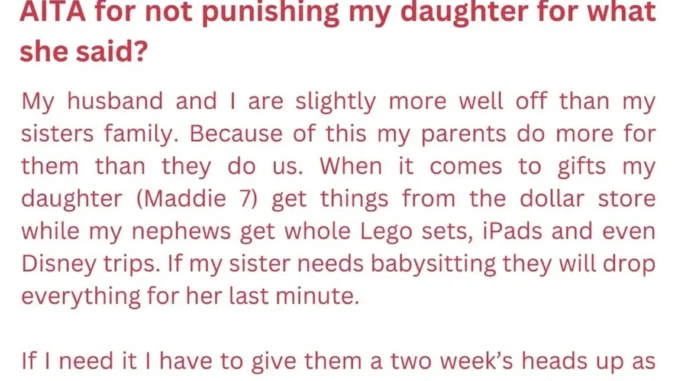When some family members receive lavish gifts and attention, while others get less, a child’s self-esteem can suffer. During a family gathering, Maddie, the young protagonist, was denied use of a trampoline because it was “for the nephews,” prompting her to say, “this is why I like other grandma and grandpa more.” Instead of punishing her, her parent stayed quiet, sparking a debate over whether the comment should have been disciplined. Was it an honest expression of hurt, or disrespect?
Navigating family favoritism can be tough. Dr. Laura Markham, a clinical psychologist, explains that children often reflect their emotional environment. When they feel undervalued, even small comments can show deep pain. Dr. Markham suggests that parents use such moments to gently discuss emotions, helping the child understand their feelings while guiding them to express them constructively.
Experts also highlight the importance of consistent family treatment. If a child senses favoritism, they may feel less important. Open communication and empathy are key to making every child feel valued.
In this case, some believe Maddie’s remark needed correction, while others feel letting her express her feelings is the first step in addressing the deeper issue of favoritism. What do you think? Should emotional honesty be protected, or should strict boundaries be enforced with young children?
